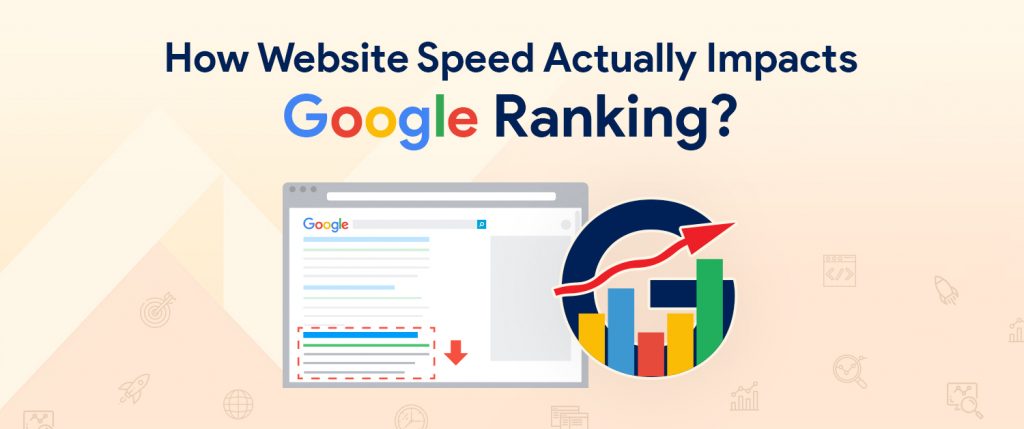
Hey There!!!
So let’s begin with a story. Engineering studio guys have amazing stories to tell at times.
So we had a friend of ours who got his website developed from one of the reputed web development companies a few months ago. The site was amazing loaded with exemplary UI/ UX, smooth navigations, flawless features, and equally seamless integration. Simply put, most of the things a business website needs.
Despite all this, he missed revenues, attributing to fewer visitors, less visibility, blah blah blah. In a nutshell, Google didn’t really love the website. Reasons could have been many and find them out he contacted Matellio.
Our expert SEO team investigated to understand the issues and came to the conclusion that the biggest reason is website speed and just like many of our customers, he wasn’t aware of it.
Now as we help him out, we thought why not reach out to you as well. So, here’s is a short-read from our team helping your understand how website speed actually impacts Google rankings.
Let’s get going!!!
Picture this: Just like our friend you have put in so many efforts working day-in-day-out to build a great business website. It might have great things in-store but that’s not how customers would interact with your website the first time. They will be loading the pages and if they take longer than expected, they will simply leave. After all, a much faster competitor is just a click away and who has time to wait? So they don’t really have a reason to stay.
The issue is more popular among mobile sites. According to one of Google’s surveys, an average mobile site takes 15 seconds to load while the user expects it within less than 3 seconds. So if you finally have that thought of website upgrade to enhance the loading time, we would give you more reasons so that you don’t change your mind no matter what.
- Loading speed is a ranking factor
- Faster loading bolsters the user experience
- Faster sites are easier to crawl
- Sites that load faster has higher conversion rates
- Faster loading decreases the bounce rate
Website loading speed is a ranking factor
Coming directly from the horse’s mouth, Google has time and again stated that a fast site helps you to rank better. Releasing the “Speed Update in 2018”. Google made it clear that the slow loading sites will now no more be able to annoy users simply because faster ones will rank better.
Loading time affects crawling
Okay, so what separates a modern website from the older ones? Researches say that it’s their clear and easily managed structure. Thus, it is apparent that the older ones full of mess need you to contact web developers right now and fix the mess as soon as possible. Fix your site structure, clean the obsolete posts and fix the redirects. Find out the best hosting plans and ensure to get yourself highly advanced servers. The bigger your websites get, the higher will be the impact of speed optimizations. The factors don’t only hamper the user experience but also affect the crawl rate and budget. Thus, faster servers ensure that Googlebot can visit your site often and crawl better.
Faster speed ensures higher conversions and lower bounce rates
Think of the times when you had to see those constantly rotating circles. Yes, the times we spend cursing it. And if this continues, what do you end up doing? You aggressive go to the upper-most right corner of the tab and click the cross button. Well, so do your users, if you have that slow loading website. That straight away contributes to the bounce rate.
Therefore, putting in efforts to decrease the site loading speed, you not only decrease the bounce rate but also increase your conversions.
Fast loading improves the user experience
Well, you must not be knowing it, but a study by Ericsson suggests that people experience real stress when experiencing a mobile delay. And more surprising is the fact that this stress level is comparable to watching a horror movie.
This simply implies that working on your site speed will also take away some stress from the lives of users. They’ll love your website and will definitely turn into loyal customers. And with them will come Google’s trust who’ll eventually identify your website as a valuable source. Great ranking boost will gradually follow this.
Finally, optimizing speed is not just about qualifying the speed test
So we repeat, “optimizing website loading speed is not just about beaking those numbers in the speed test.” Don’t get fooled by those imaginary scores and metrics. Most of the simply emulate false environment. Check out your users, their details, how they access your website, common devices, and browser. Once you have the insights, combine them with Google’s tools and updates for the best results.



